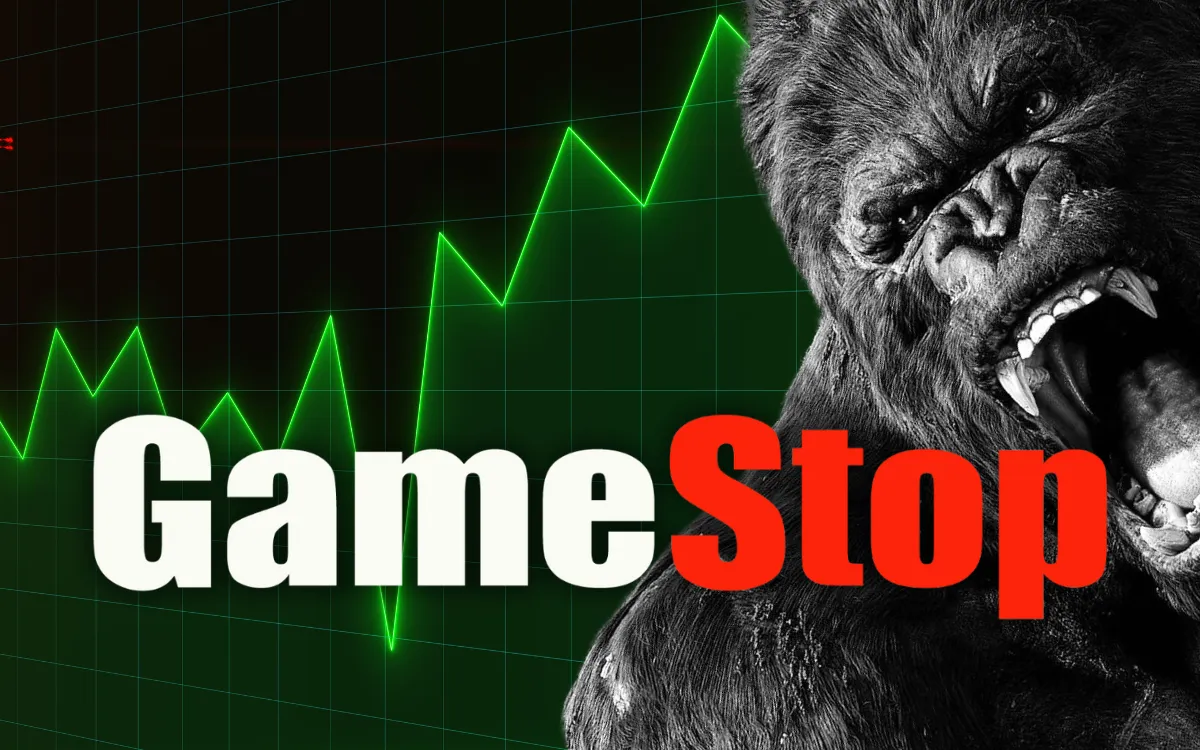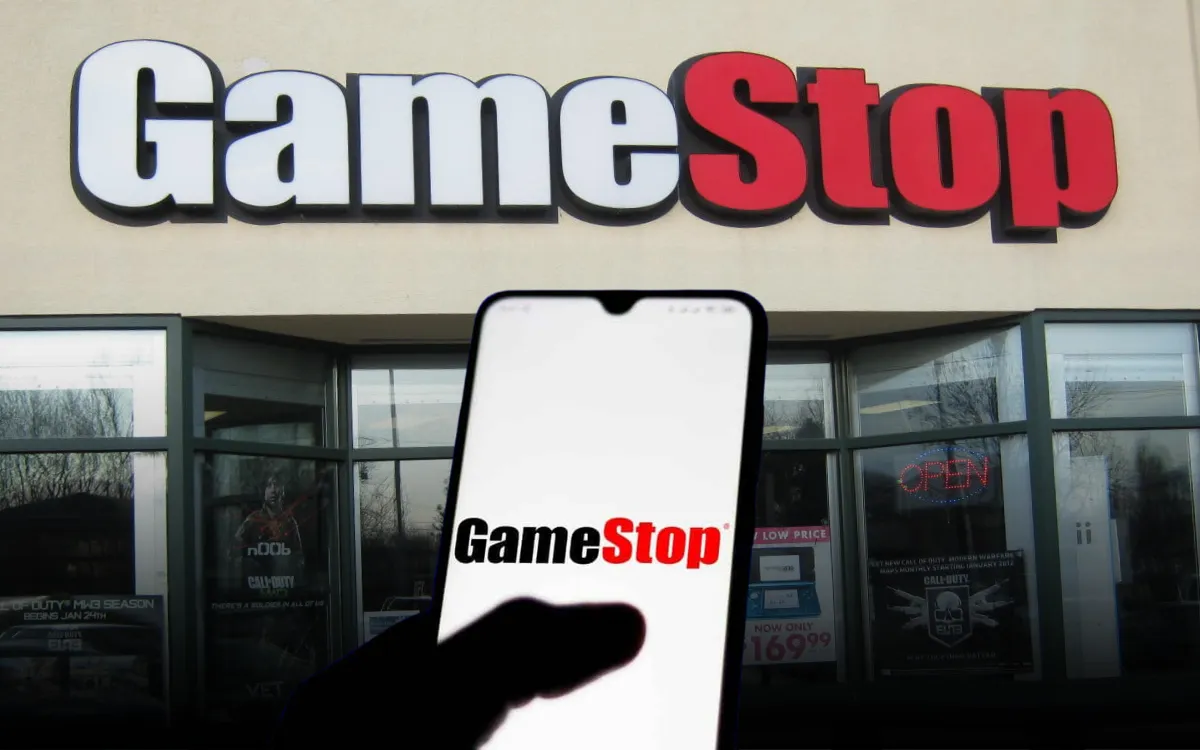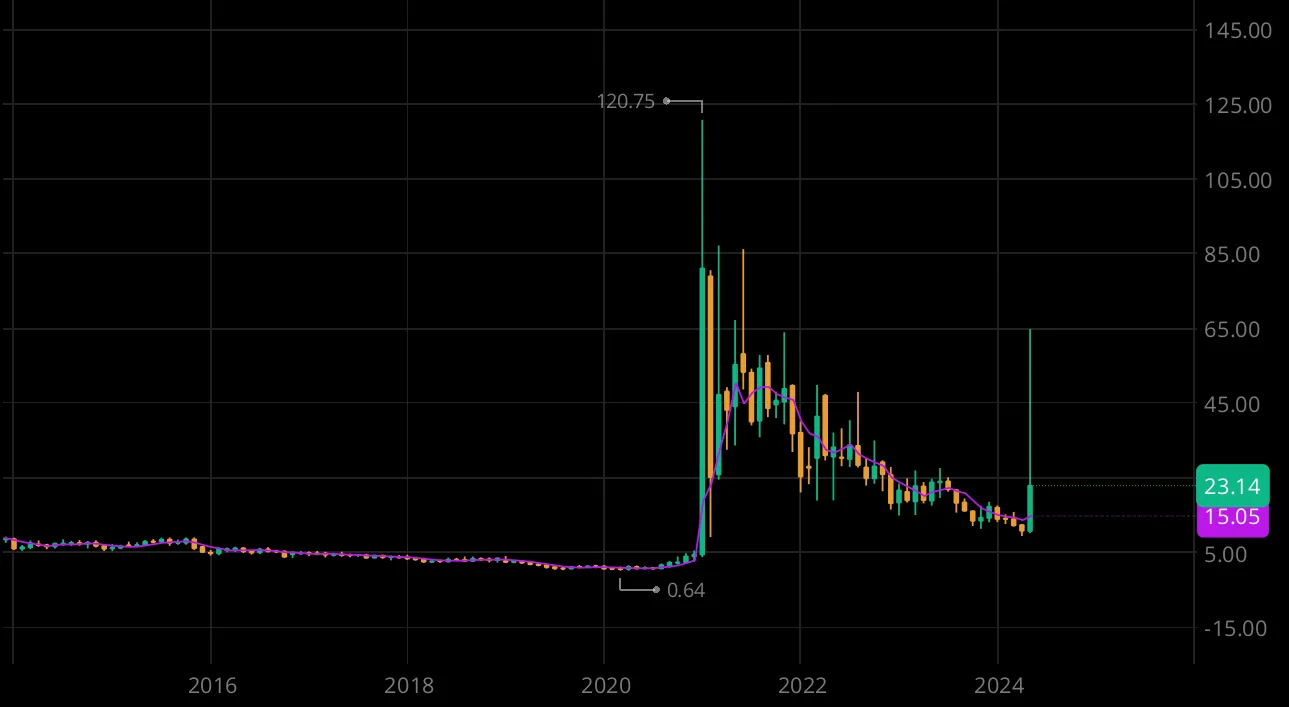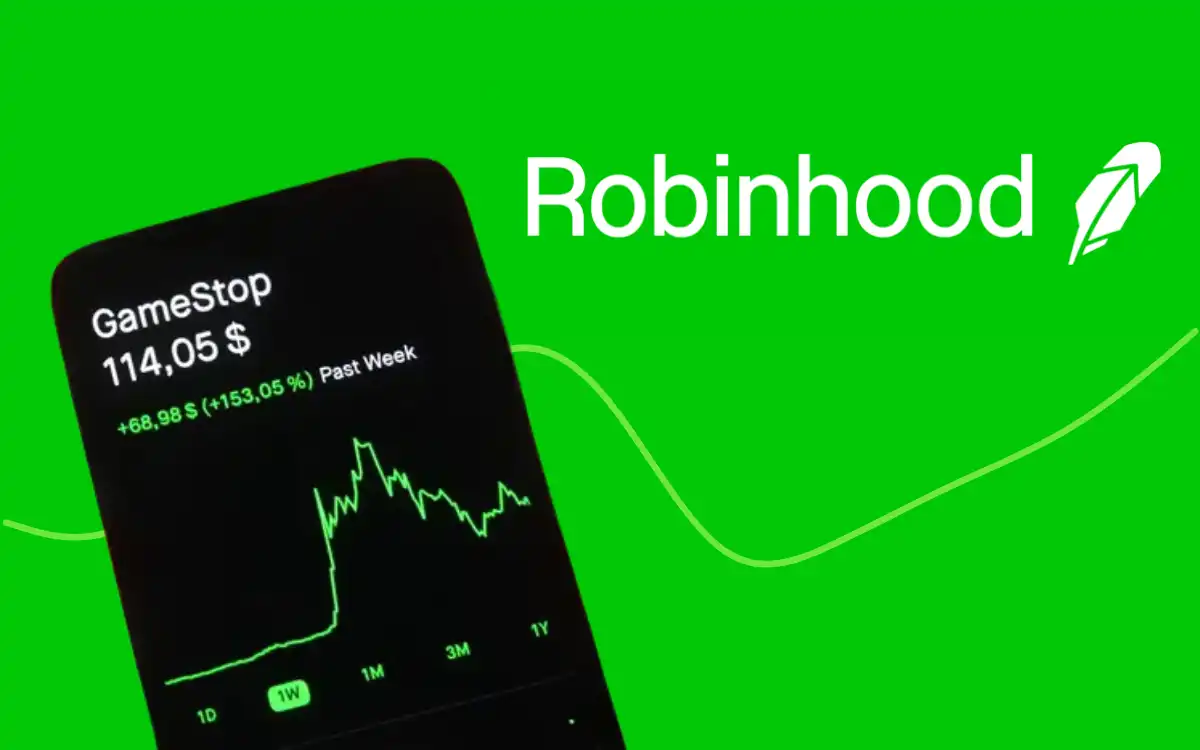How Reddit Investors(Apes) Took on Wall Street and Won with GameStop
The GameStop Saga: Explained [Update: June 2024] Here's all you need to know about the GameStop short squeeze, and what could come next

In early 2021, the financial world witnessed an unprecedented event: a group of retail investors from the subreddit WallStreetBets (WSB) managed to outmaneuver seasoned hedge fund managers, driving up the stock price of GameStop (GME ??) and causing significant financial losses for those who had bet against the company. This David vs. Goliath story highlighted the power of collective action and social media, reshaping the dynamics of the stock market.
Background
GameStop's Financial Struggles
GameStop, a brick-and-mortar video game retailer, had been struggling for years due to the shift towards digital gaming and e-commerce. With declining sales and a business model that seemed increasingly outdated, the company's stock became a prime target for short sellers—investors who bet that the price of a stock will decline.
The Mechanics of Short Selling
Short selling involves borrowing shares of a stock to sell them at the current price, with the intention of buying them back later at a lower price, returning the borrowed shares, and pocketing the difference. Hedge funds, recognizing GameStop's vulnerabilities, heavily shorted its stock, expecting its price to fall further.
The Role of WallStreetBets
WallStreetBets, a subreddit known for its high-risk, high-reward investment strategies, identified the excessive short interest in GameStop's stock. Led by reddit user DeepFu**ingValue aka Roaring Kitty (real name Keith Gill), the community saw an opportunity not only to make money but also to challenge the dominance of hedge funds and their influence over the market.
Recent Developments: Doubling Down on GameStop
Keith Gill, the influential retail investor known for his pivotal role in the GameStop saga of early 2021, has made headlines once again in June 2024 by significantly increasing his position in the video game retailer's stock. This move has reignited discussions about the potential future of GameStop and the ongoing influence of retail investors in the stock market.
In a recent update, Gill revealed that he has substantially increased his investment in GameStop, both in terms of shares and options. In the writing moment, Keith Gill currently has:

- 5,000,000 shares of GameStop (GME): Purchased at an average price of $21.
- 120,000 call options for June 21, 2024, with a $20 strike price: These options were bought at $5.5 each.
During the pre-market on the following morning, the price of $GME gained a whopping 100%.
Many retail investors can be heard echoing "If he's still in, then I'm still in." as well as "Diamond Hands ????".
Analysis: What This Move Means
Confidence in GameStop's Future
Gill's decision to double down on his GameStop investment signals strong confidence in the company's future prospects. Since the 2021 short squeeze, GameStop has undergone significant changes, including leadership shifts, strategic pivots towards e-commerce, and efforts to diversify revenue streams. Gill's investment suggests he believes these changes will drive long-term growth and value creation.
For a detailed overview of GameStop's recent performance and strategic initiatives, you can view their latest financial report.
Influence on Retail Investors ??
Gill's renewed commitment to GameStop is likely to galvanize the retail investor community once more. His previous analyses and successful predictions have earned him a loyal following, and his actions could inspire other investors to reassess their positions on GameStop and similar stocks.

Market Reactions and Volatility
The news of Gill's increased stake in GameStop could lead to heightened market activity and volatility. During the 2021 saga, retail investors' collective buying pressure significantly impacted stock prices, leading to substantial gains and losses for various market participants. A similar reaction could occur as investors react to Gill's latest move.
Hedge Funds and Short Sellers
Hedge funds and short sellers, many of whom were severely impacted by the 2021 short squeeze, will likely pay close attention to Gill's actions. They may adjust their strategies to mitigate potential risks associated with another surge in GameStop's stock price, potentially leading to increased market scrutiny and regulatory oversight.
How It All Began
Early Interest on WallStreetBets
In late 2020, Keith Gill began posting detailed analyses on WallStreetBets, highlighting the potential for a "short squeeze" in GameStop—a situation where short sellers are forced to buy back shares at higher prices to cover their positions, driving the price up further. His conviction and data-driven approach attracted the attention of other members.
Initial Surge in Stock Price
As more WSB users bought shares and call options (bets that the stock price would rise), GameStop's stock price began to climb. This initial surge caught the attention of mainstream media and attracted even more retail investors, creating a feedback loop of buying and increasing prices.

Hedge Fund Reactions
Hedge funds with significant short positions, such as Melvin Capital, faced mounting losses as the stock price soared. To mitigate these losses, they were forced to buy back shares at higher prices, contributing to the upward momentum in a classic short squeeze.
Strategies and Tactics
Methods Used by Reddit Investors
Reddit investors employed several strategies to drive up GameStop's stock price:
- Buying Shares: Direct purchases of GameStop stock increased demand and price.
- Options Trading: Buying call options forced market makers to buy shares to hedge their positions, further driving up the price.
- Social Media Coordination: Continuous communication on WallStreetBets and the newer subreddit Superstonk kept the momentum going, encouraging more investors to join and become part of the "Ape community" ??.
- Direct Registration System: Direct Registering of Shares (DRS) via ComputerShare allows investors to hold shares directly in their name, reducing brokerage risks and manipulation, providing greater control and transparency for retail investors.
Communication and Coordination
The coordination on WallStreetBets was critical. Members shared analyses, strategies, and motivational posts, fostering a sense of community and collective action. Memes and catchphrases like "Hodl [sic] the line" and "Apes together strong" became rallying cries, encouraging investors to hold their positions despite the risks.
The Impact of the Short Squeeze
The short squeeze caused a dramatic increase in GameStop's stock price, reaching a peak of $483 per share in late January 2021. This surge inflicted billions in losses on short sellers and disrupted the operations of several hedge funds.
Hedge Fund Responses
Financial Losses
Hedge funds like Melvin Capital suffered substantial losses, with Melvin reportedly losing over 50% of its assets in January 2021 alone. These losses prompted emergency infusions of capital from other financial firms to stabilize their operations.
Mitigation Actions
In response to their mounting losses, hedge funds and other institutional investors adjusted their strategies, reducing their short positions and increasing their scrutiny of heavily shorted stocks to avoid similar situations in the future.
Public Statements and Media Coverage
The dramatic events drew significant media attention, with public figures and analysts weighing in on the implications. Some hedge fund managers condemned the actions of retail investors, while others called for regulatory changes to prevent future occurrences.
Broader Impact
Effects on the Stock Market
The GameStop phenomenon had ripple effects across the stock market. Stocks with high short interest, such as AMC Entertainment and BlackBerry, experienced similar surges as retail investors sought to replicate the success of GameStop. This volatility raised concerns about market stability.
Changes in Trading Platforms

Trading platforms like Robinhood, popular among retail investors, faced criticism after restricting trades on GameStop and other volatile stocks. Robinhood cited the need to meet regulatory capital requirements, but many investors saw this as an attempt to protect institutional interests. This led to a public outcry and legal scrutiny.
Legal and Regulatory Scrutiny
The events prompted hearings in Congress and investigations by regulatory bodies such as the Securities and Exchange Commission (SEC). Lawmakers and regulators debated potential reforms to market practices, short selling, and the role of trading platforms.
Cultural and Social Implications
Retail Investors vs. Wall Street
The narrative of small retail investors taking on powerful Wall Street institutions resonated with the public, framing the event as a battle of David vs. Goliath. This populist sentiment highlighted frustrations with perceived market inequalities and the influence of large financial entities.
Influence of Memes and Social Media
Memes and social media played a crucial role in the GameStop saga, providing a platform for coordination and morale-boosting. The viral nature of these communications helped sustain the movement and drew in new participants, amplifying its impact.??
Official Films and Documentaries
The GameStop saga has been depicted in several official movies and documentaries. Notable works include GameStop: Rise of the Players, and Eat the Rich: The GameStop Saga which released on Netflix in September 2022.
The 2023 movie Dumb Money, including many A-tier celebrities, is offering a gripping dramatization of the events. Watch the trailer for Dumb Money to see this thrilling story come to life.
Broader Societal Resonance
The event resonated beyond the financial world, symbolizing a challenge to established power structures and the potential for collective action to effect change. It sparked discussions about the democratization of finance and the role of individual investors in the market.
Aftermath and Lessons Learned
- In the aftermath, GameStop's stock price stabilized at a higher level than before the surge, allowing the company to leverage its newfound capital for strategic initiatives, including shifting towards e-commerce and modernizing its business model.
- The losses suffered by hedge funds led to greater caution in short selling practices. Hedge funds began to reassess their risk management strategies and the potential for coordinated retail investor actions in the future.
- Regulators and lawmakers considered various reforms, including increased transparency in short selling, stricter regulations on trading platforms, and measures to protect retail investors. These discussions aimed to balance market integrity with investor protection.
- The GameStop saga highlighted the power of collective action and the influence of social media in modern investing. It also underscored the risks involved in speculative trading and the importance of financial literacy for retail investors.
Conclusion
Popular Pages
Top 5 Sweepstakes Sites


